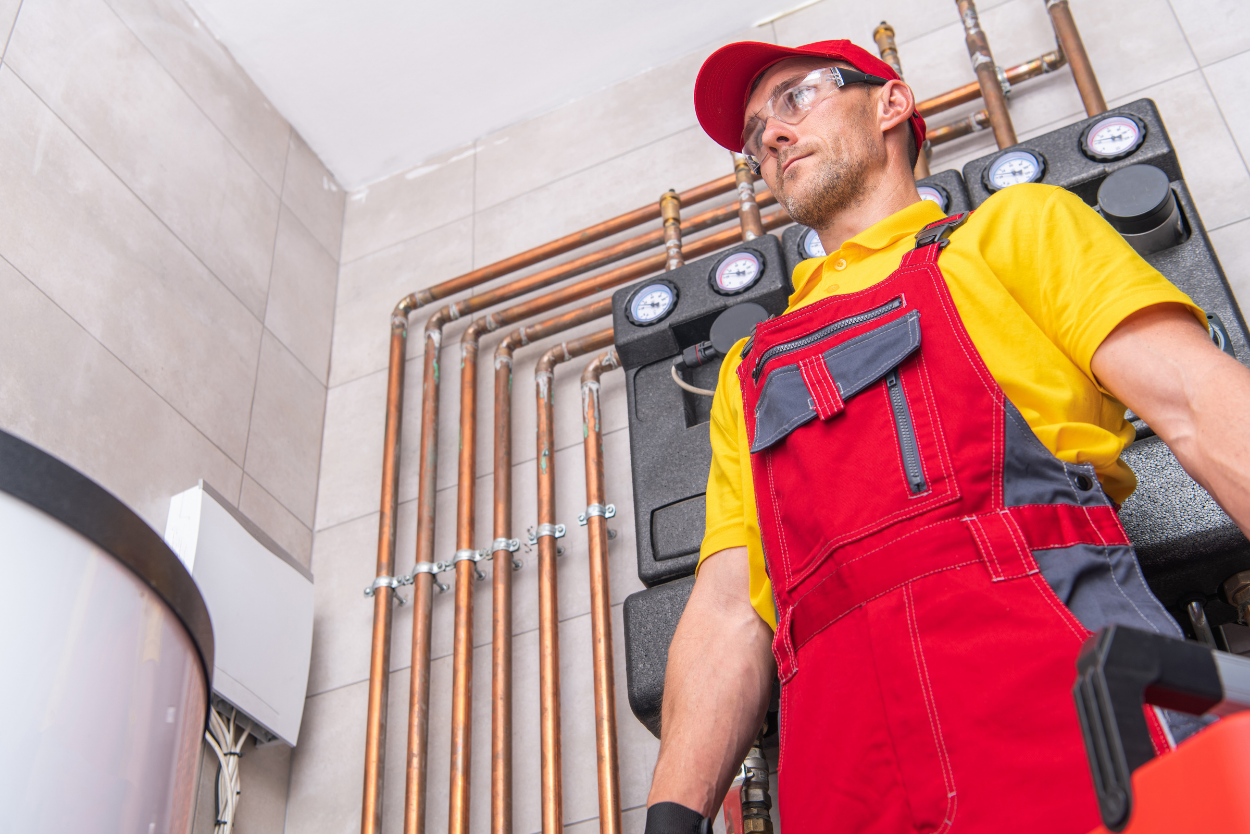Running a restaurant comes with a unique set of challenges, and plumbing issues are often near the top of that list. From clogged drains to leaky faucets, these problems can disrupt daily operations and affect customer satisfaction. Below are eight common restaurant plumbing issues and how a professional plumbing company can resolve them to keep your business running smoothly.
Table of Contents
- Key Takeaways
- 8 Common Restaurant Plumbing Issues and Fixes
- Clogged Drains
- Leaky Faucets and Fixtures
- Low Water Pressure
- Running Toilets
- Backflow Issues
- Water Heater Problems
- Sewer Line Issues
- Grease Trap Problems
- Frequently Asked Questions
- Choose L&P Plumbing for Hassle-Free Plumbing Services
Key Takeaways
- Clogged drains are common from food waste and grease but can be prevented with proper disposal and regular maintenance.
- Leaky faucets often result from worn components and can waste large amounts of water if not repaired.
- Low water pressure may stem from blockages or faulty regulators; regular inspections help maintain steady flow.
- Running toilets are usually caused by faulty flappers or fill valves and lead to significant water waste if ignored.
- Backflow issues can contaminate water supplies; prevention devices must be installed and maintained.
- Water heater problems, such as sediment buildup, can be reduced with flushing and routine checks.
- Sewer line issues often result from roots, grease, or aging pipes and require professional inspections.
- Grease trap problems occur when maintenance is neglected; regular cleaning is essential.
- Preventive maintenance and staff training are the best ways to avoid plumbing emergencies.
1. Clogged Drains
Restaurants handle large amounts of food and grease, making clogs one of the most frequent plumbing problems. Food particles, grease, and non-biodegradable items like paper towels can cause blockages that slow or stop water flow.
Signs
- Slow draining sinks or dishwashers
- Gurgling sounds from drains
- Foul odors from decomposing food waste
Prevention
Train staff on proper disposal, use drain strainers, and schedule regular professional maintenance.
Fixes
Minor clogs can sometimes be cleared with a plunger, but stubborn blockages usually require hydro jetting by a plumbing company, which thoroughly cleans pipes to prevent future problems.
2. Leaky Faucets and Fixtures
Leaks are common due to worn-out washers, O-rings, or mineral buildup in hard-water areas.
Signs
- Persistent dripping
- Water stains near fixtures
- Unexplained water bill increases
Prevention
Schedule regular checks and replace worn parts promptly. Installing a water softener can reduce mineral buildup.
Fixes
Professionals can replace washers, cartridges, or entire fixtures as needed to stop leaks and restore efficiency.
3. Low Water Pressure
Low pressure may be caused by sediment buildup, corroded pipes, or a faulty pressure regulator.
Signs
- Weak water streams
- Inconsistent pressure
- Poor performance from dishwashers or ice machines
Prevention
Regular inspections, cleaning aerators, and checking regulators help maintain proper flow.
Fixes
Professionals may clean or replace clogged fixtures, adjust regulators, or repair deeper pipe issues.
4. Running Toilets
Running toilets waste large amounts of water and often result from worn flappers, floats, or fill valves.
Signs
- Continuous hissing or trickling
- Frequent refilling of the tank
- Higher water bills
Prevention
Inspect toilet components regularly and replace worn parts early.
Fixes
Adjusting floats or replacing flappers usually works. For complex issues, call a plumbing company to ensure proper repair.
5. Backflow Issues
Backflow occurs when contaminated water flows into clean water lines, often from pressure changes.
Signs
- Discolored or odd-tasting water
- Unusual odors
- Visible debris in tap water
Prevention
Install and regularly test backflow prevention devices.
Fixes
Backflow should be handled by professionals, who can test, repair, or replace devices to ensure safe water.
6. Water Heater Problems
Restaurants rely heavily on hot water for cleaning and cooking. Sediment buildup, faulty thermostats, or failing heating elements can disrupt supply.
Signs
- Inconsistent temperatures
- Rumbling or popping noises
- Rusty or discolored water
Prevention
Flush tanks annually, check thermostats, and inspect for rust or corrosion.
Fixes
Professionals may replace faulty parts or recommend a new unit for older heaters.
7. Sewer Line Issues
Tree roots, aging pipes, or improper grease disposal can damage sewer lines, leading to backups and health hazards.
Signs
- Slow drains throughout the building
- Foul odors
- Sewage backups
Prevention
Regular inspections, root barriers, and proper grease disposal are essential.
Fixes
Plumbers may use trenchless repair methods to restore pipes with minimal disruption.
8. Grease Trap Problems
Grease traps prevent fats, oils, and grease from clogging the sewer system but require consistent cleaning.
Signs
- Foul odors from kitchen drains
- Slow drainage
- Visible grease backups
Prevention
Clean traps on a set schedule and train staff to scrape plates and dispose of grease properly.
Fixes
Professional cleaning ensures compliance with health codes and prevents costly backups.
Frequently Asked Questions
What should you do if your restaurant’s sump pump fails during a storm?
Check the power source and discharge line. Having a backup or battery-operated pump helps prevent flooding.
How can restaurants address low water pressure during peak hours?
Ensure plumbing systems are sized for demand and schedule regular inspections to prevent blockages.
Can plumbing issues affect food preparation?
Yes. Low pressure or inconsistent hot water can compromise cleaning, sanitation, and food safety.
Choose L&P Plumbing for Hassle-Free Plumbing Services
When it comes to restaurant plumbing, you can’t afford downtime. At L&P Plumbing, we understand the unique challenges that restaurants in Watertown, CT, face. Our team provides prompt, reliable service for everything from grease trap cleanings to sewer line repairs.
Call the trusted plumbing company in Watertown today — L&P Plumbing!

